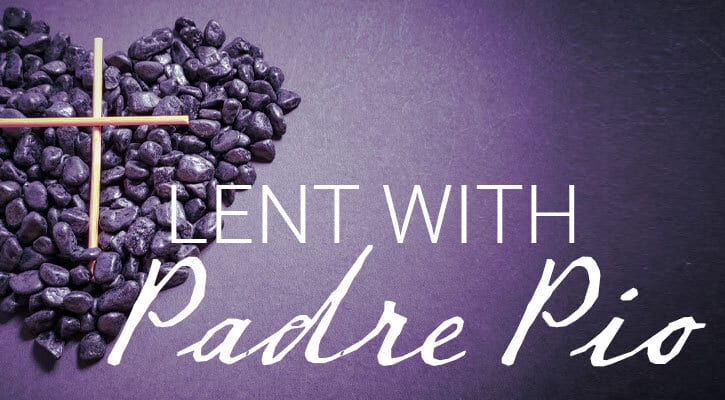WASHINGTON (OSV News) — The U.S. bishops’ migration chair called recent comments by Vice President JD Vance about the church’s work with migrants “a tremendous mischaracterization” while speaking at an event in the nation’s capital Feb. 12. But he also invited Vance to sit down and talk with him to set the record straight.
Vance, who is Catholic, questioned the motives of the U.S. bishops’ criticism of Trump’s new immigration policies in a Jan. 26 interview — including reducing restrictions on raids on churches and schools and the suspension of a federal refugee resettlement program. He asked whether the bishops are actually concerned about receiving federal resettlement funding and “their bottom line.”
The U.S. Conference of Catholic Bishops responded by pointing to audited financial statements by an outside firm that show that the USCCB does not profit from the work they do with legally eligible refugees.
‘Tremendous mischaracterization’
During remarks at a panel discussion hosted by the Initiative on Catholic Social Thought and Public Life at Georgetown University, Bishop Mark J. Seitz of El Paso, Texas, said, “The characterization of a bishop or a group of bishops as people who are more concerned about the bottom line … than to serve people is a tremendous mischaracterization.”
“He clearly does not know me,” Bishop Seitz said. “He does not know my heart.”
But Bishop Seitz added, “I would love to sit down sometime with Vice President Vance and talk to him about these issues in regard to our resettlement work and things like that because he clearly has been misinformed.”
“That is so unfortunate when it comes from a person who has a loud megaphone,” Bishop Seitz said. “It can be very harmful to this work of the church to very vulnerable people. So, it really is concerning.”
Bishop Seitz also thanked Pope Francis for a letter expressing his support for the U.S. bishops’ work with migrants and refugees amid what the pontiff called the current “major crisis” on immigration policies in the U.S.
“Pope Francis has once again come forward and spoken in a certain way on our behalf with an eloquence that few of us can,” Bishop Seitz said.
The Georgetown panel discussion, “Migration, Refugee Resettlement, and Mass Deportation: Moral, Human, and Policy Choices,” sought to examine recently implemented migration policy changes by the Trump administration, and to examine what the church teaches on the subject of migration.
In his letter to the U.S. bishops, Pope Francis acknowledged “the right of a nation to defend itself and keep communities safe from those who have committed violent or serious crimes while in the country or prior to arrival.” At the same time, the pontiff cautioned that “deporting people who in many cases have left their own land for reasons of extreme poverty, insecurity, exploitation, persecution or serious deterioration of the environment, damages the dignity of many men and women, and of entire families, and places them in a state of particular vulnerability and defenselessness.”
ICE arrests at churches
One Trump administration policy over which panelists expressed particular concern was the decision to rescind long-standing restrictions on Immigration and Customs Enforcement agents from making arrests at what are seen as sensitive locations, including houses of worship, schools and hospitals.
A spokesperson for the Department of Homeland Security previously said in a statement provided to OSV News the directive “gives our law enforcement the ability to do their jobs.” But panelists argued houses of worship in some locations were reporting lower attendance levels amid concerns about deportation or detention.
“When you talk to actual religious leaders about ‘what does religious freedom mean to you?’ Their answers almost never have to do with the law and almost always have to do with the right to serve, to take care of vulnerable people, to live out their faith,” Tim Schultz, president of the 1st Amendment Partnership, said during remarks on the panel.
“It is why we use the term free exercise,” he said. “Exercise is a great term for what the freedom of religion really is about. And I think when you have less of that exercise you have less of a just society.”
Schultz argued, “The First Amendment and free exercise of religion tends to offend people who are in power.”
Given that Republicans are currently in control of Congress and the White House, Schultz further argued, some perceptions of the concept might shift on the political left.
“I think we are going to see the Religious Freedom Restoration Act get popular with progressive people who have been skeptical about it,” he said. “And you’re going to see people on the right who used to really love the act,” might also change their perspective.
The Religious Freedom Restoration Act, sometimes referred to as RFRA, was approved in 1993 and aimed to prevent federal and state governments from “substantially burden(ing) a person’s exercise of religion.”
By Kate Scanlon | OSV News







News & Commentary
Bishops’ chair invites Vance to dialogue over church’s work with migrants
WASHINGTON (OSV News) — The U.S. bishops’ migration chair called recent comments by Vice President JD Vance about the church’s work with migrants “a tremendous mischaracterization” while speaking at an event in the nation’s capital Feb. 12. But he also invited Vance to sit down and talk with him to set the record straight.
Vance, who is Catholic, questioned the motives of the U.S. bishops’ criticism of Trump’s new immigration policies in a Jan. 26 interview — including reducing restrictions on raids on churches and schools and the suspension of a federal refugee resettlement program. He asked whether the bishops are actually concerned about receiving federal resettlement funding and “their bottom line.”
The U.S. Conference of Catholic Bishops responded by pointing to audited financial statements by an outside firm that show that the USCCB does not profit from the work they do with legally eligible refugees.
‘Tremendous mischaracterization’
During remarks at a panel discussion hosted by the Initiative on Catholic Social Thought and Public Life at Georgetown University, Bishop Mark J. Seitz of El Paso, Texas, said, “The characterization of a bishop or a group of bishops as people who are more concerned about the bottom line … than to serve people is a tremendous mischaracterization.”
“He clearly does not know me,” Bishop Seitz said. “He does not know my heart.”
But Bishop Seitz added, “I would love to sit down sometime with Vice President Vance and talk to him about these issues in regard to our resettlement work and things like that because he clearly has been misinformed.”
“That is so unfortunate when it comes from a person who has a loud megaphone,” Bishop Seitz said. “It can be very harmful to this work of the church to very vulnerable people. So, it really is concerning.”
Bishop Seitz also thanked Pope Francis for a letter expressing his support for the U.S. bishops’ work with migrants and refugees amid what the pontiff called the current “major crisis” on immigration policies in the U.S.
“Pope Francis has once again come forward and spoken in a certain way on our behalf with an eloquence that few of us can,” Bishop Seitz said.
The Georgetown panel discussion, “Migration, Refugee Resettlement, and Mass Deportation: Moral, Human, and Policy Choices,” sought to examine recently implemented migration policy changes by the Trump administration, and to examine what the church teaches on the subject of migration.
In his letter to the U.S. bishops, Pope Francis acknowledged “the right of a nation to defend itself and keep communities safe from those who have committed violent or serious crimes while in the country or prior to arrival.” At the same time, the pontiff cautioned that “deporting people who in many cases have left their own land for reasons of extreme poverty, insecurity, exploitation, persecution or serious deterioration of the environment, damages the dignity of many men and women, and of entire families, and places them in a state of particular vulnerability and defenselessness.”
ICE arrests at churches
One Trump administration policy over which panelists expressed particular concern was the decision to rescind long-standing restrictions on Immigration and Customs Enforcement agents from making arrests at what are seen as sensitive locations, including houses of worship, schools and hospitals.
A spokesperson for the Department of Homeland Security previously said in a statement provided to OSV News the directive “gives our law enforcement the ability to do their jobs.” But panelists argued houses of worship in some locations were reporting lower attendance levels amid concerns about deportation or detention.
“When you talk to actual religious leaders about ‘what does religious freedom mean to you?’ Their answers almost never have to do with the law and almost always have to do with the right to serve, to take care of vulnerable people, to live out their faith,” Tim Schultz, president of the 1st Amendment Partnership, said during remarks on the panel.
“It is why we use the term free exercise,” he said. “Exercise is a great term for what the freedom of religion really is about. And I think when you have less of that exercise you have less of a just society.”
Schultz argued, “The First Amendment and free exercise of religion tends to offend people who are in power.”
Given that Republicans are currently in control of Congress and the White House, Schultz further argued, some perceptions of the concept might shift on the political left.
“I think we are going to see the Religious Freedom Restoration Act get popular with progressive people who have been skeptical about it,” he said. “And you’re going to see people on the right who used to really love the act,” might also change their perspective.
The Religious Freedom Restoration Act, sometimes referred to as RFRA, was approved in 1993 and aimed to prevent federal and state governments from “substantially burden(ing) a person’s exercise of religion.”
By Kate Scanlon | OSV News